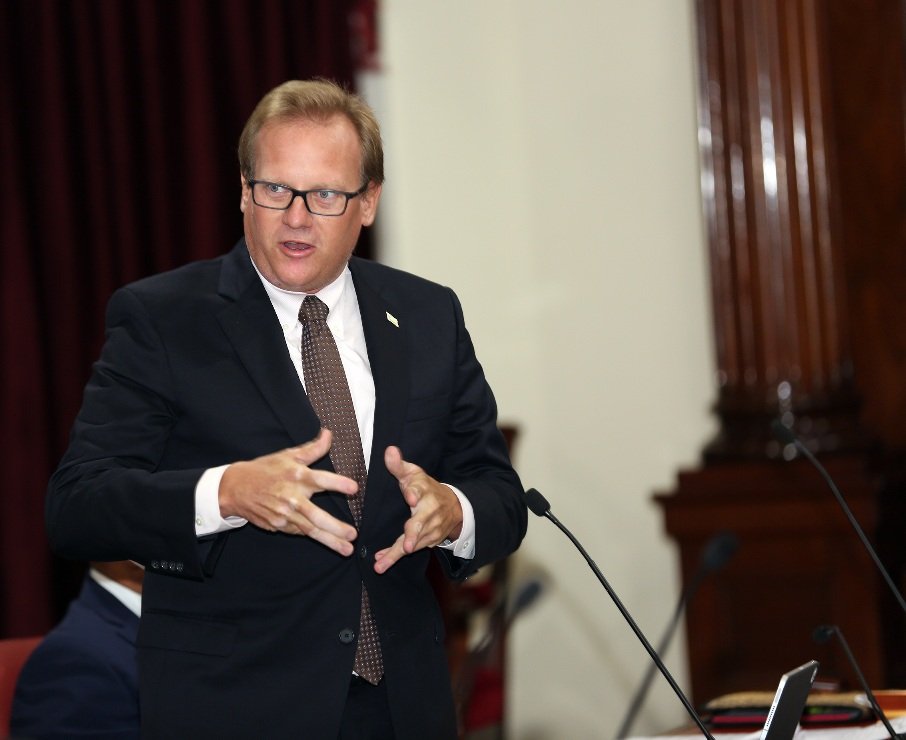NASSAU, BAHAMAS — The government determined that two years was a reasonable and fair amount of time for persons that have gone missing in events to be presumed dead, Attorney General Ryan Pinder said yesterday.
Pinder said the Evidence Act Amendment will bring finality to scores of families across The Bahamas as a result of missing family members from Hurricane Dorian.
He was making his contribution to the debate on the legislation in the Senate yesterday.
Pinder said: “This is fundamentally important to bring finality to scores of families across The Bahamas as a result of missing family members from Hurricane Dorian and allow normalcy to return to day-to-day life.”
Pinder said he was unware of any statute which authorizes an individual, other than a coroner or medical practitioner, to officially make any determination that a person is dead or to officially declare a person to be dead, or to sign any certificate as to the cause of death of any person.
“A person who is missing for seven years, can be presumed dead pursuant to section 93 of the Evidence Act, which provides that: “Where any person is proved not to have been heard of for seven years after proper inquiry made by or on behalf of those who naturally would have heard of him if he had been alive, the court shall presume, until the contrary is shown, that he is dead but the court in such a case shall make no presumption as to the time of his death, and the burden of proof that he died at any particular time shall be on the person who asserts it,” said Pinder.
He continued: “This is the pressing question. In circumstances of peril where the deceased cannot be found, the person is missing, is it equitable to cause for families to wait seven years to be presumed dead, or should we provide for a mechanism to make the process easier and shorter.
“This is the underlying reasoning for the amendment, specifically with respect to those missing as a result of Hurricane Dorian, and to provide closure and finality to years of grief, devastation and a lack of finality.”
Pinder noted that the Evidence (Amendment)(No.2) Bill, 2022 inserts a new section 93A into Chapter 65, The Evidence Act.
The new section reads: “93A. Presumption of death where person disappeared in circumstances of peril. (1) Where any person is proved to have disappeared in circumstances of peril and the person has not been heard of or from for two years or more since the disappearance and after proper inquiry made by or on behalf of those who naturally would have heard of or from the person if the person had been alive, the court shall presume, until the contrary is shown, that the person is dead and the court in such a case may presume the time of death of that person to be the date of the peril.(2) For the purpose of this section “circumstances of peril” includes a natural disaster such as a hurricane”.
Pinder noted that The Bahamas is not the first country to advance such legislation.
“We have benchmarked this legislation against other jurisdictions who have done similar legislative action. For example, we looked at Ontario and Quebec who passed similar legislation after the 9/11 terrorist events where persons were never found and Louisiana after Hurricanes Dorian and Rita.
“Our Bill, much like that of Ontario, provides for the court to determine what a circumstance of peril is. We, however, made clear that a hurricane is to be considered a circumstance of peril. We did not go ahead and prescribe specific circumstances of peril for a reason, because you cannot do so and me all encompassing of any event of peril.
“If you omit an event of peril, then arguable the section would not apply in those circumstances, potentially excluding Bahamians from a framework that they were intended to be included in. These can include matters that we don’t have to encounter on a day-to-day basis, such as a plane crash, terrorist events, boats going missing, tsunami etc. We chose to allow the courts to make such determination to eliminate the risk that the amendment wouldn’t apply to an unanticipated event of peril.”
Pinder added: ” There may also be a question as to why we chose two years. As indicated one of the jurisdictions that we looked at, Ontario, doesn’t have any time period. We did not think that appropriate as some time period should be prescribed to ensure that the person is in fact missing.
“We looked at benchmarks in this regard as well and observed that Louisiana for instance, after Hurricane Katrina and Rita, provided a person is presumed dead after the passage of two years. We thought this was a reasonable and fair approach taking into consideration the circumstances.”






